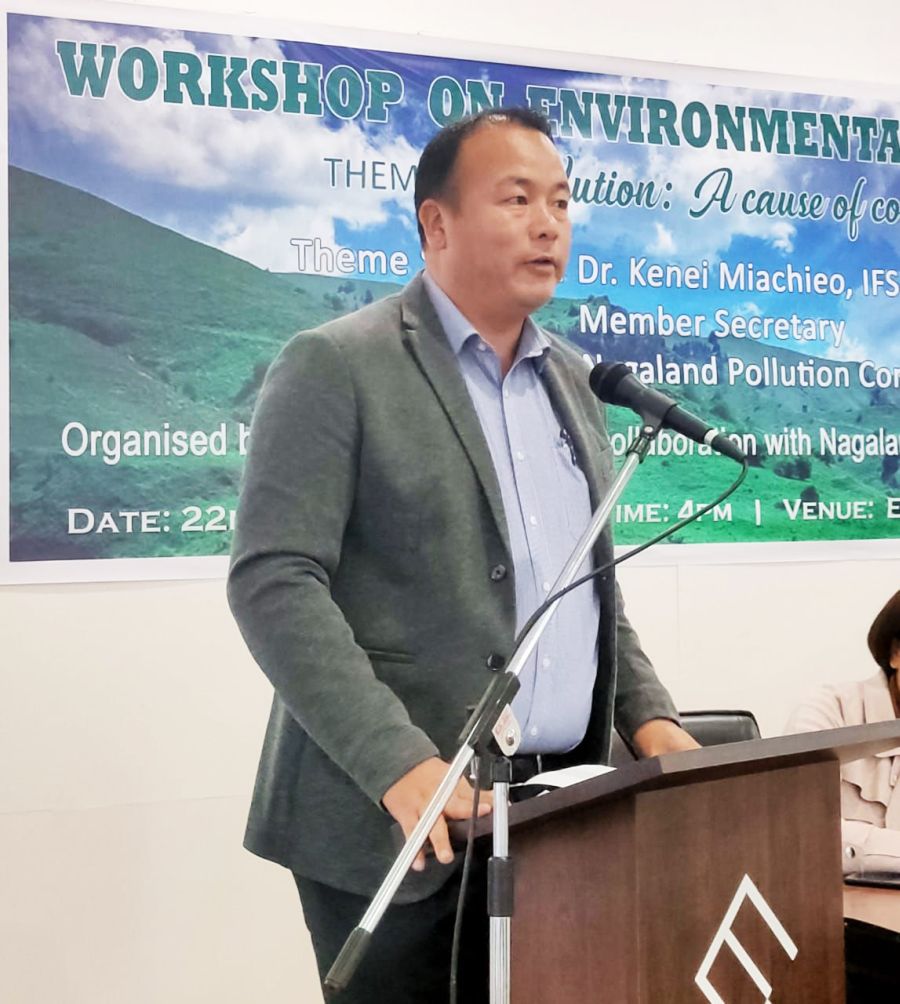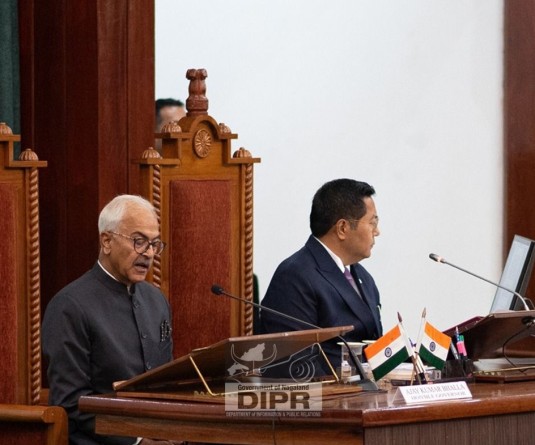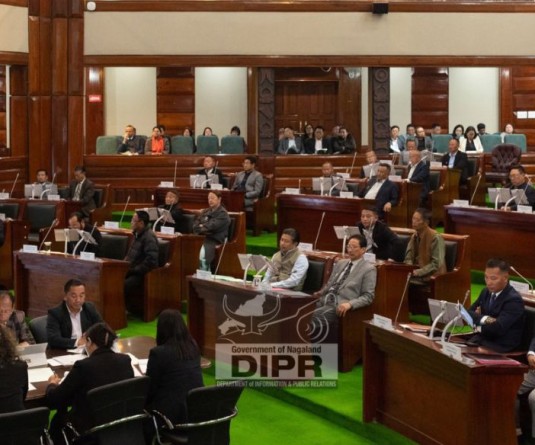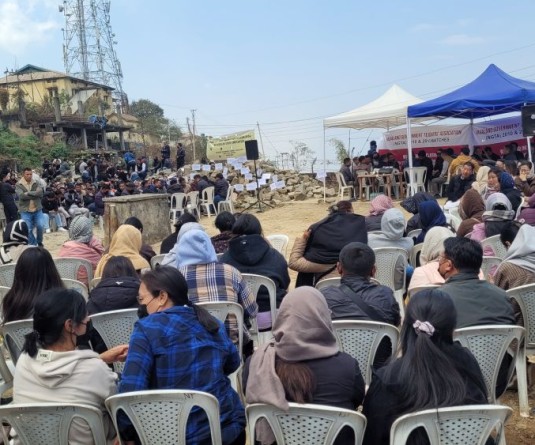Nagaland: Bad roads are a major cause of pollution, says NPCB

Dr Kenei Miachieo addressing the workshop at Eastgate Hotel, Kohima on February 22. (Morung Photo)
Morung Express News
Kohima | February 22
Dr Kenei Miachieo, IFS, Member Secretary, Nagaland Pollution Control Board (NPCB) today informed that the main cause of pollution in the two cities of Kohima and Dimapur is dust caused by the deplorable road conditions in the two districts.
Thus, for the NPCB, the main focus has been put towards the improvement of roads, he said while speaking at a workshop on environmental pollution themed, ‘Pollution: A cause of concern’ at Eastgate Hotel, Kohima today.
The workshop was organised by the Kohima Press Club and the Nagaland Pollution Control Board (NPCB).
A key focus of the Board has also been developing of action plans as directed by the National Green Tribunal (NGT). Dr Miachieo informed that Nagaland was fined with an amount of 2 crores in 2019 for failing to comply with the NGT’s direction. “NPCB is primarily dealing with court cases. We have 46 ongoing cases with two cases in High Court relating to mining,” said Dr Miachieo.
With the affirmation that media has a role in building awareness on environmental issues, the workshop was organised by the Kohima Press Club in collaboration with the Nagaland Pollution Control Board to update and equip media persons on the pollution scenario in Nagaland.
"When it comes to environment, it is the duty of the State to safeguard the environment," said Dr. Miachieo, who also noted that journalism plays a crucial role in enabling that the State performs its duty. He also stated that judicial activism in the country has been developed with the sensitisation built by journalists.
Some of the major concerns on pollution in Nagaland, according to Dr Miachieo, are biomedical wastes, e-waste, chemical/hazardous wastes and plastic wastes.
“Rapid growth and new breakthroughs in the field of science and technology have taken humankind into a new age, making our lives easy. While technological developments have affected almost every aspect of our lives, on the other hand, it has its devastating effect on the nature. Thus, mankind faces dual challenges from modern machines and from saving the nature.”
He also raised concerns on the absence of a common biomedical waste treatment facility in Nagaland, and the lack of collection centers for e-waste in the State. While efforts have been made to ban single use plastics, Dr Miachieo viewed that the State still needs more efforts to change the behavioral attitude of the public.
"At this paradoxical juncture, the role of media has become very important and worthwhile,” said Atono Tsükrü Kense, General Secretary, KPC.
Kense noted that journalists, including print, electronic and digital, can be the mediums of spreading information about environment to the masses—educating them about environmental concerns. Some of the key areas and concerns that journalists can report and write on are 'Global warming, air and water pollution, overuse of fertilizers, use of single use plastics, conservation of our natural resources', suggested Kense.






